Level Up Your Mental Health in 60 Seconds
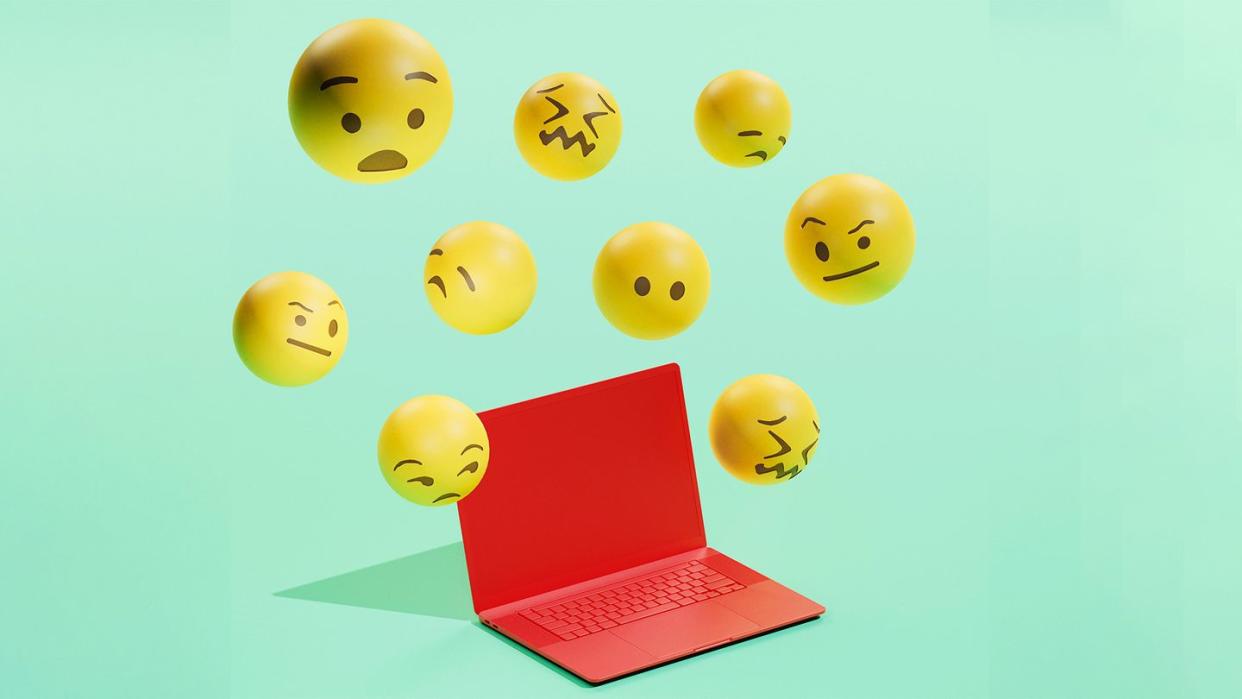
"Hearst Magazines and Yahoo may earn commission or revenue on some items through these links."
IT'S OKAY NOT to be okay. We’re glad that’s true because according to official accounts—and probably half of the conversations you’ve had in the past year—things are rough. Nearly one in three U. S. adults say they had depression and anxiety symptoms in 2023, according to Census Bureau data. And there’s no sign of improvement.
It isn’t just us Americans, either, the World Health Organization confirms. Which is actually good news, because there’s a building global effort to help us all feel more okay. The UK is pioneering on-demand, seven-day-a-week therapy clinics where it’s as easy to get help as it is a shave. Croatia is piloting digital facial scans that read your anxiety level and recommend a health checkup if it’s high.
Cutting-edge, yes, but what about low-tech, low-effort ways to help you feel better right now? Experts agree that there are ways to feel more okay on your own. The first step is acknowledging that you’re down or anxious or just off. “If you say to yourself, ‘I’m having a hard time right now,’ it has the effect of making you feel more in control,” says therapist and MH advisor Avi Klein, L.C.S.W. Owning that you’re not totally fine doesn’t mean you’re going to wallow in it. “It just means that what you’re feeling is uncomfortable and hard and you wish it weren’t happening. And that can help you find the ground underneath your feet,” he says.
Meditation retreats and quiet-quitting are options for feeling better. But with your mind, sometimes you don’t have to go that big. How are you feeling now? A little more okay? Great! Then onward to more simple steps to achieve glorious okayness, no matter how much time you have.

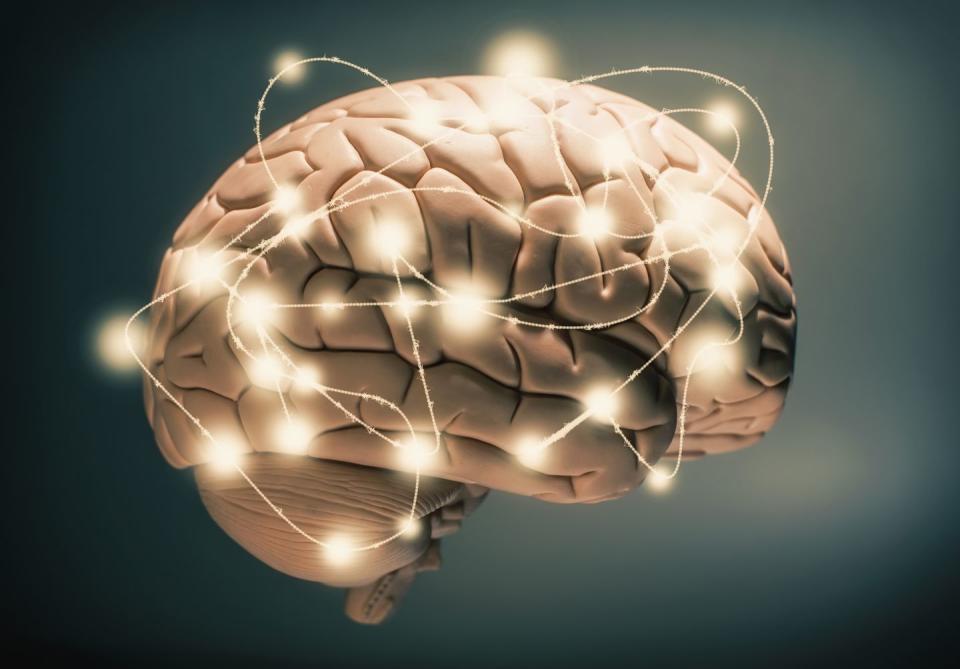
If you have 1 minute…
Tickle Your Brain
THE INTERNET HAS made ASMR—the autonomous sensory meridian response—bigger than ever. Sounds like a person whispering about their day can give you a calming brain tingle. “Recent studies suggest that ASMR can help individuals relax and reduce their anxiety,” says Sunny Xun Liu, Ph.D., at the Stanford Social Media Lab. Try: Gibi ASMR or ASMR Darling.
Use This 4-Letter Word
WHETHER IT'S LUNCH or life, making choices can make you anxious. Decision coach Nell Wulfhart says reframing the situation can help. Instead of asking yourself, “What if?” switch to the more confident, regret-free “Even if.” So instead of “What if I take a job at a start-up that fails?” think, “Even if it fails, I’ll learn things and my résumé is updated for the next move.”


If you have 5 minutes...
Off-load
THE PROMPT JOURNALS flooding the TikTok shop are the rare social-media trend that mental-wellness pros actually get behind. If the word journaling gives you hives, these fill-in-the-blank routes ease the pain by prompting you. No staring down a blank page and trying to figure out what to put there that’s not totally cringe.
Writing down what’s on your mind isn’t just a thing counselors and Tim Ferriss tell you to do. Research has found it can help reduce mental distress and increase resilience in those with anxiety. People often resist “journaling” of any sort because they think it has to be deep, or you have to write a gratitude list, or even something that makes sense. Nope. “It’s really just a way to process our thoughts,” says Kenly Brozman, a health and performance coach at Canyon Ranch in Lenox, Massachusetts.
“We process things differently when they’re just in our heads than we do when we say them out loud or write them down,” she says. Getting them out of your head helps you…get them out of your head. If you don’t have a prompt journal, or the prompts aren’t what you need, simply dump whatever you’re thinking about onto a piece of paper. Don’t get precious about it. You don’t even have to be nice or fair or write legibly. Shred the page when you’re done if you want. Just off-load and let yourself carry less weight.
Ink + Volt Prompt Journal
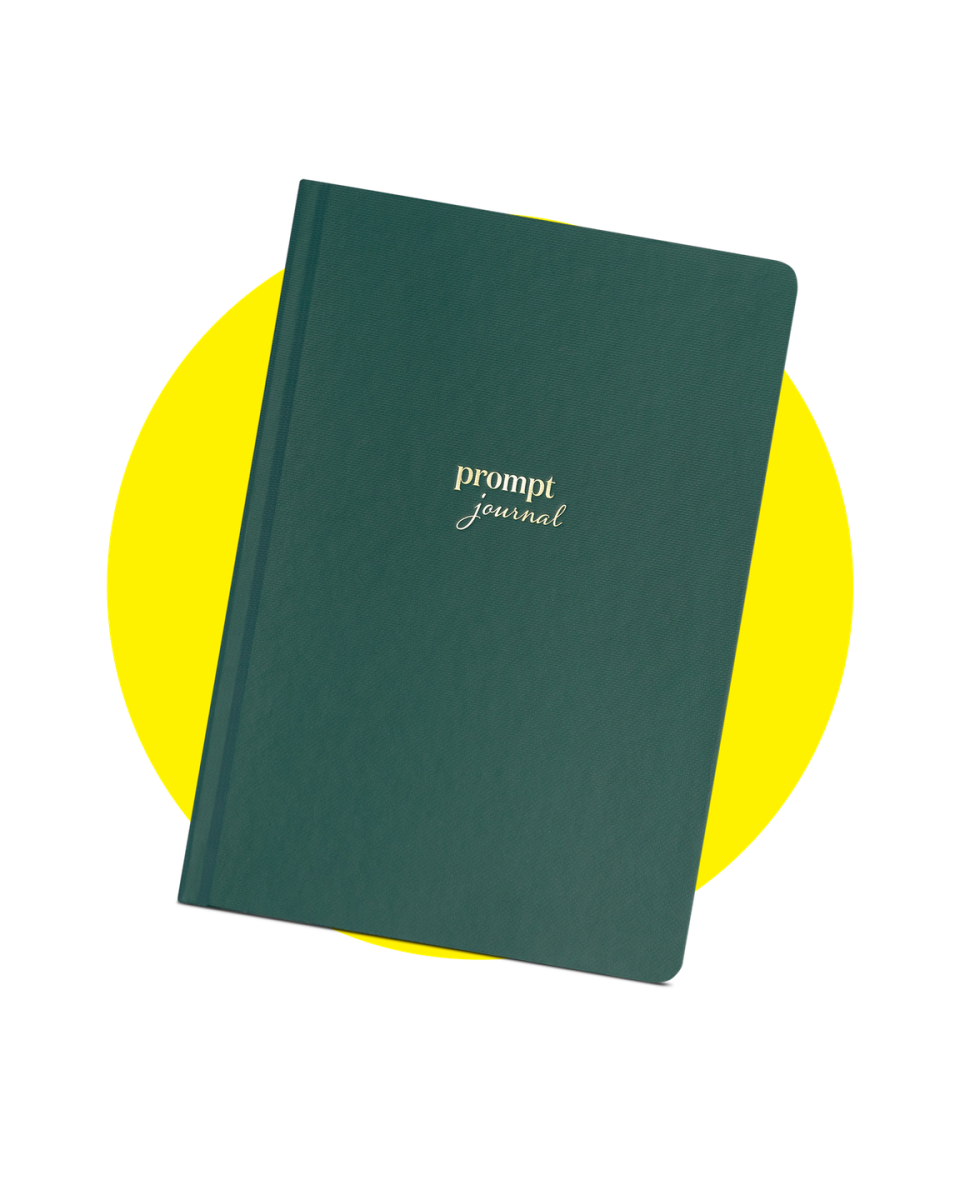
This book’s more than 90 prompts help you think on topics like relationships and mindfulness. $26.50.
MindJournal
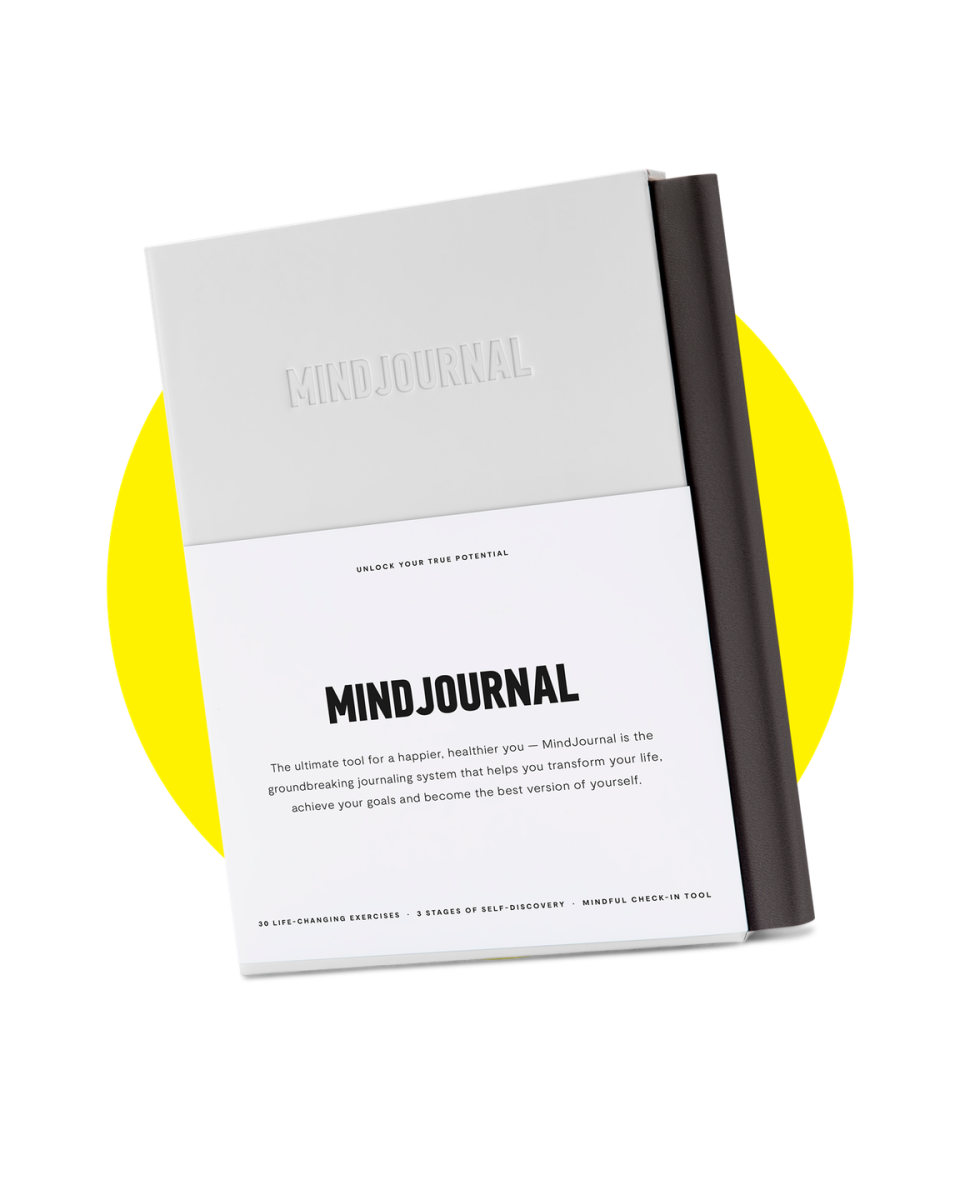
Smart and solid prompts—even a checklist of emotions—in a handsome book make you want to engage. $48.
The Five Minute Journal
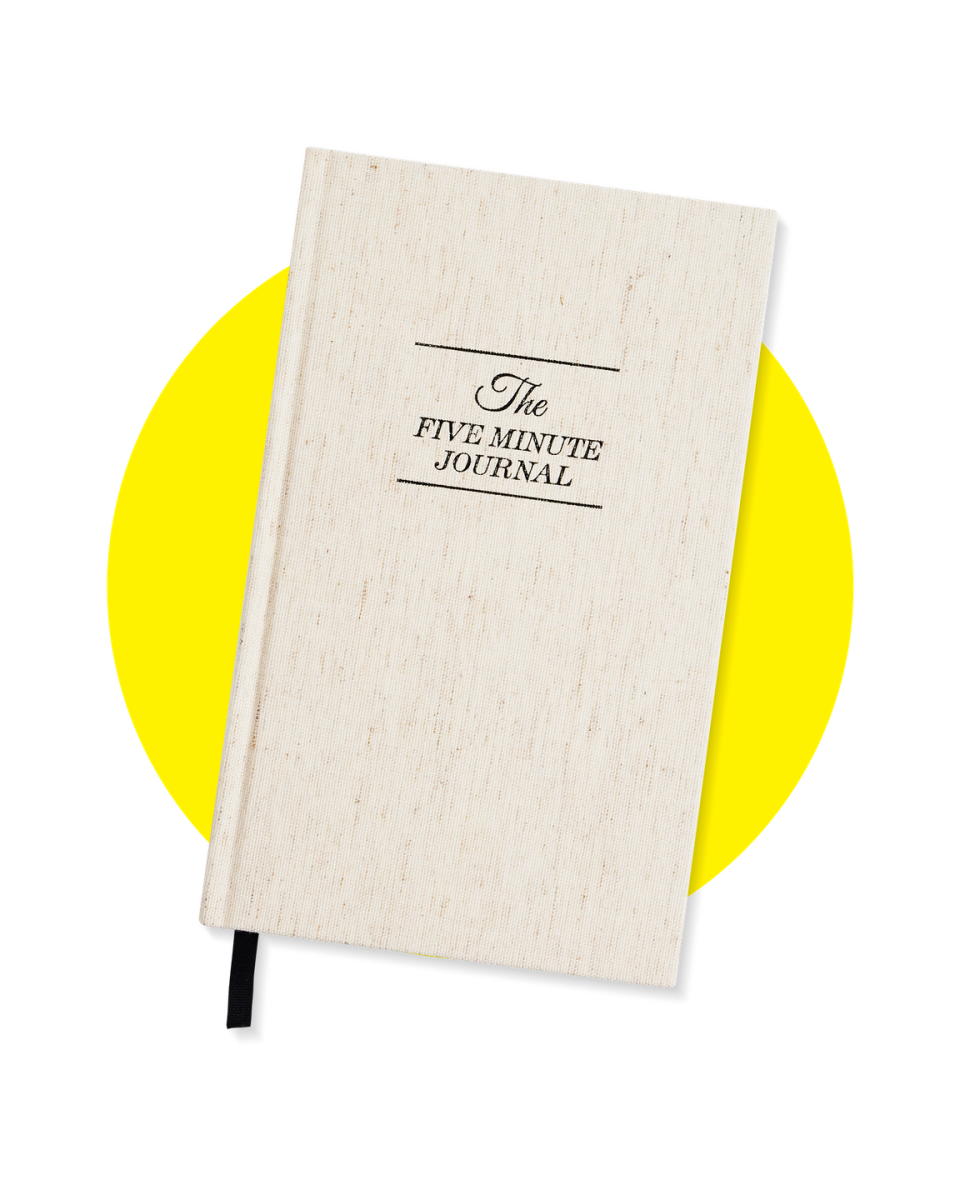
This classic has the same prompts on each page, including “What would make today great?” $29.

If you have 1 hour...
Plan a Hang
WITH THE 2023 surgeon general’s report tagging how loneliness is as deadly as smoking 15 cigarettes a day, start-ups, of course, are aiming to fill the social void. Peoplehood, for instance, and the forthcoming Belong Center facilitate in-person sessions to help you build relationships. Probably fine, but instead of forcing it with strangers (and paying), try bringing people you know into things you already do. Invite someone to join you on your Friday lunch run. Build or cook stuff with others. Check in at a climbing gym, where you need to be belayed. If that’s not your style, reframe your thoughts about it. A 2020 Harvard study found that people who reappraised alone time as “solitude” and not “loneliness” stayed in a better mood.

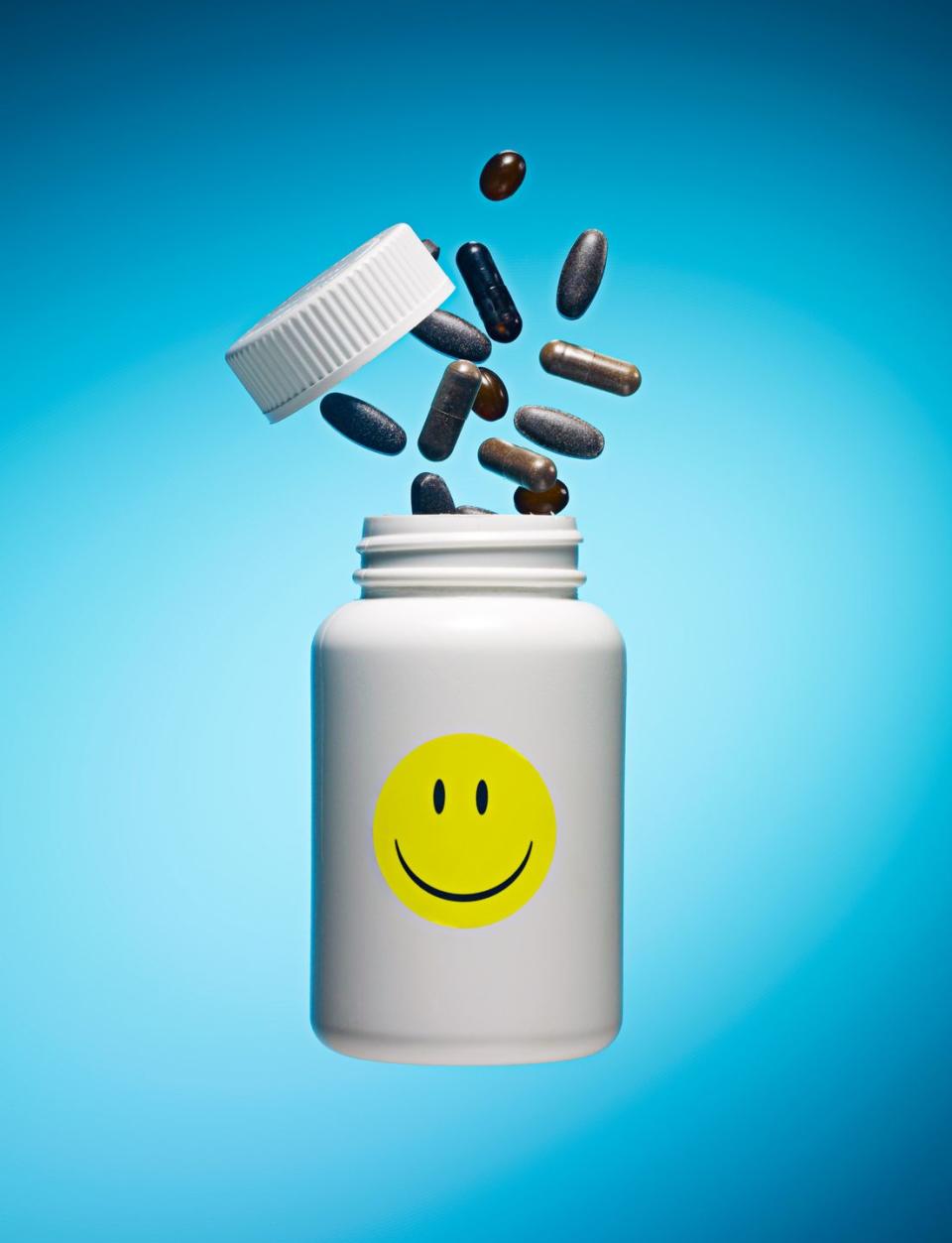
If you have 1 month...
Consider Meds
ANTIDEPRESSANTS HAVE BEEN around for about seven decades. Right now we need them more than ever. About 21 million Americans every year have at least one major depressive episode. Pharma companies are always trying to come up with newer meds that work better. In some cases, they’re succeeding. Lexapro, an antidepressant developed in the early 2000s, has fewer side effects than clomipramine, developed in the ’60s. Auvelity, which gained FDA approval two years ago, takes less time to act than some other antidepressants. There’s even a drug in development right now that you may need to take for only two weeks—and then you’re done. And amid these advancements, studies are offering glimmers of hope that GLP-1 receptor agonists (Ozempic, Wegovy, Mounjaro) might help treat depression.
But what gets lost in the news is that we have plenty of antidepressants right now that work really well. I wish more guys gave them a chance. The newer meds aren’t across-the-board better than older ones—they’re just different. For instance, I had a patient who felt “wired and tired” for months. He was always up late, replaying the “mistakes” from his workday, and was so overwhelmed he was skipping meals. An older medication called mirtazapine was a good option for him because it’s great for sleep and can help improve appetite. A newer one, like Auvelity, on the other hand, can be stimulating and might make someone like that patient feel too amped up.It’s true that finding the right antidepressant might take a minute. With SSRIs, it could take a couple weeks for someone to notice symptom relief. And if the first med you choose isn’t right and you try something else, it might take a month for you to feel better. But spending some time with your doctor to get the right treatment gives you the best chance for long-term success. Yes, waiting to feel better can be a pain, but you shouldn’t let that put you off. What’s a few months to get your whole life back?—Gregory Scott Brown, M.D.

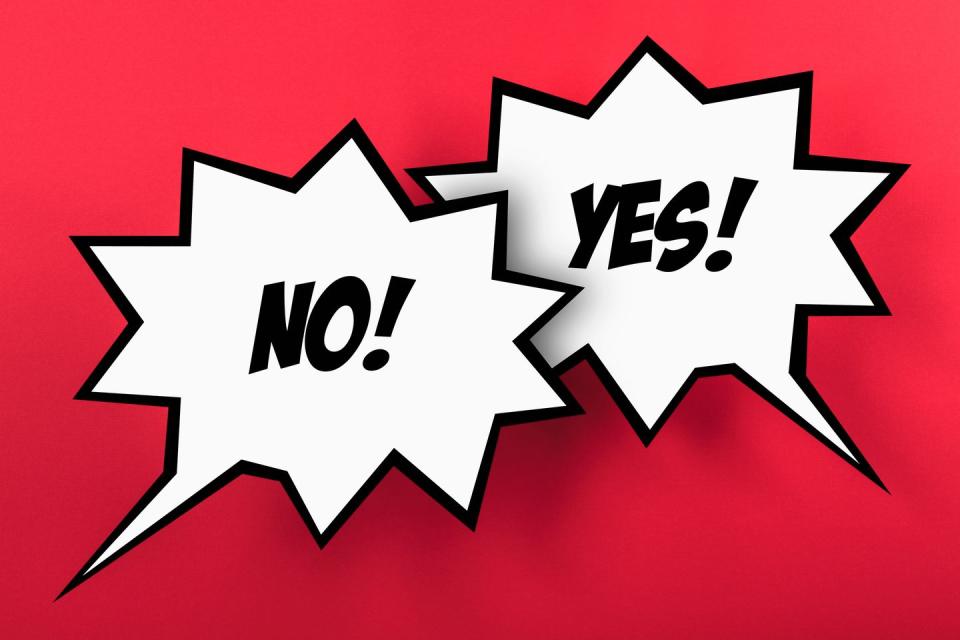
If you have 1 year...
Seek to Understand
ELECTION ANGST IS back. This time, stave off that frustration and maybe even some infighting among friends and family with strategies from Monica Guzman, a senior fellow at Braver Angels, an organization that helps people manage partisan animosity.
How Do You Avoid Clashes?
One way is to wait a little longer before jumping in with your opinion. For instance, in 2016 my mother voted for Trump and I voted for Clinton. I called her the night of that election. I was worried at a deep level that something had broken in America.
And my mother, to her credit, listened for a very long time. I’m her daughter, and I was in pain, so she listened. And then what she said wasn’t that I was wrong. She talked about growing up in Mexico knowing that every election was rigged. She told me what it felt like to be here for this election, when all she saw in the media was the presupposition that Hillary Clinton would win. But she decided to vote anyway. Because she knew that in this country, her vote would count. And her candidate won. So when I said my fear was that democracy had broken, she said to me, “Democracy works.” And because she had listened so long, I was able to hear that, and it complicated my view.
Why Is Complicating Your View Good?
A lot of times when things are very simple in our minds, they’re also scarier. Our imagination about the other side is fueled by fear. We exaggerate the extremity of their beliefs and tend to think that people hold them for nefarious reasons. But when we actually hear their stories, we often discover the reasons aren’t nefarious, and the world becomes less scary. That night after I talked with my mom, I could no longer say with much certainty that things had broken in America. Instead, I was able to ask things like “What are all the dynamics that are going on in our society?” rather than asserting an answer. Then it’s a lot easier to be collaborative than being in a place where you feel that everyone who disagrees with you is crazy, stupid, or evil.
But You Still Don’t Agree.
Even though you’ll still disagree, you will be less afraid. And you’re going to be less consumed by, for example, the need to check your favorite media source to see what more affirmation they can give you about how awful people are on the other side. The more you talk with other people, the more likely you are to realize that you don’t disagree on everything. We can’t see that if we keep judging one another from a distance.

Learning A Team Sport

Chris Baker 52, Elementary-School Teacher
I had done individual sports for most of my life, but in 2021 I decided to try ice hockey. I bought some used equipment and showed up at an adult pickup game and basically said, “Can I play?” It has brought me more than I expected. I’ve learned to love the good and bad of being on a team. Sometimes you feel you’ve let your teammates down, but you have camaraderie when you make an assist. It’s given me a new reason to keep up with myself.
Caring for Plants

Nelson ZêPequéno 34, Artist and Founder of @BlackMenWithGardens
I bought some succulents as a way to learn how to draw them. It was a low point in my life, and one day I looked at them on the windowsill. Seeing something else that was alive in my apartment made me feel not so alone. I looked online and found a low level of representation of people who look like me doing anything with plants. So I took matters into my own hands and created a platform where people like me can see, be seen, and be inspired.
Creating Pop-ups
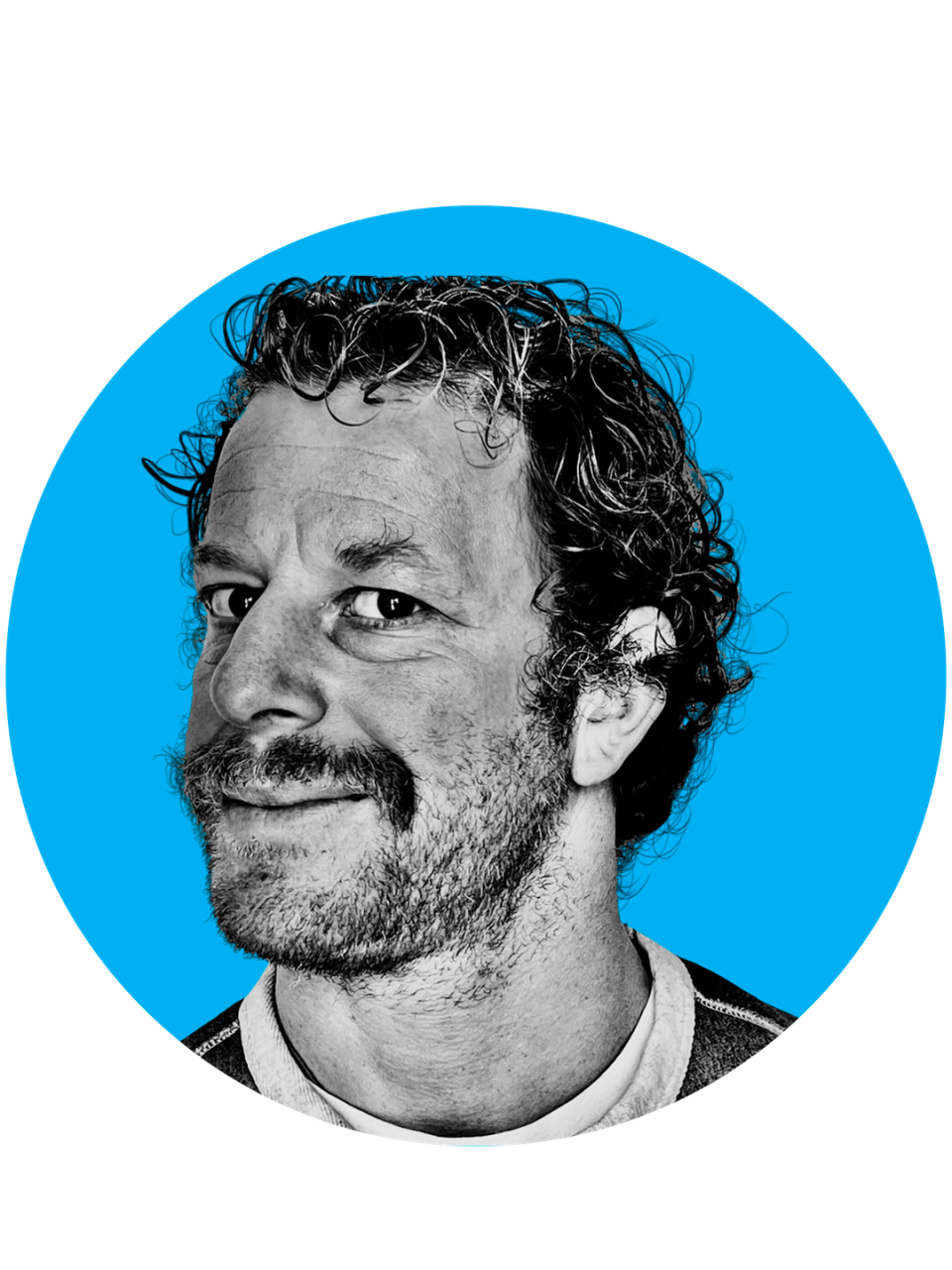
Joshua David Stein 42, Writer
I started craffting restaurant-related pop-up cards—like pop-up books, but as cards—in the pandemic. I felt I was re-creating those little joys and surprises I missed when not going out. Then I made them for pediatric hospice patients. They help me create a small world of predictable cause and effect. Flip a flap, a face pops up. Open a fold, a flower unfurls. Pull a tab, tears roll down my face. If only life were that cut-and-dry.
You Might Also Like

